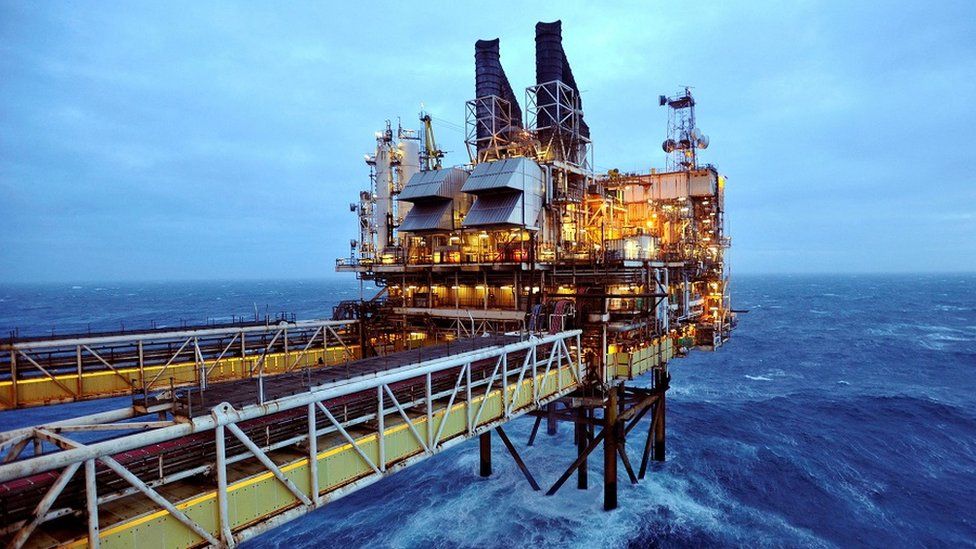9 minutes ago
About sharing
Energy giant BP has reported lower than expected profits of $3.3bn (£2.7bn) between July and September despite oil prices rising again.
Its profits were down from $8.1bn in the same period last year, but up from $2.6bn in the previous quarter.
BP, along with many other energy firms, posted huge figures in 2022 following Russia’s invasion of Ukraine, which led to oil prices soaring.
Oil prices are lower than that period, but have risen recently.
BP’s latest results are the first to be released after Bernard Looney resigned as the company’s chief executive in September following a review of his personal relationships with colleagues.
Mr Looney, who had led the company since 2020, stepped down with immediate effect.
BP’s profits for the three months to the end of September were lower than the $4bn predicted by analysts.
But interim chief executive Murray Auchincloss said the quarter had been “solid” and that company expected to “grow earnings through this decade, and on track to deliver strong returns for our shareholders”.
The company said the rise in profits from earlier this year were a result of higher oil refining margins and increased oil and gas production.
However, it added that money made on its oil was “partly offset by weak gas marketing and trading”.
BP said it expecting refining margins across the oil and gas industry to be “significantly lower” towards the end of 2023.
In the past couple of years, higher oil and gas prices have fuelled rises in energy bills for households and businesses, which has resulted in the government implementing a windfall tax on oil giants including BP and Shell.
A windfall tax is a one-off levy that targets companies who benefit from something they were not responsible for, in this case a sharp rise in oil prices following Russia’s invasion of Ukraine.
The policy is currently in place until March 2028 and means the firms pay 35% on UK profits.
Oil and gas firms operating in the North Sea are already taxed differently to other firms. They pay 30% corporation tax on their profits as well as a supplementary 10% rate. It means, with the windfall tax, firms have a total tax rate of 75%.
Critics of the tax have argued such a high tax rate could hit investment in UK projects.
BP said that in the first nine months of this year, it paid about $1.35bn in tax on its North Sea business, $620m of which was as a result of the windfall. In 2022, it paid $2.2bn in tax, of which $700m was a result of the policy.
Related Topics
13 September
1 August
29 September
